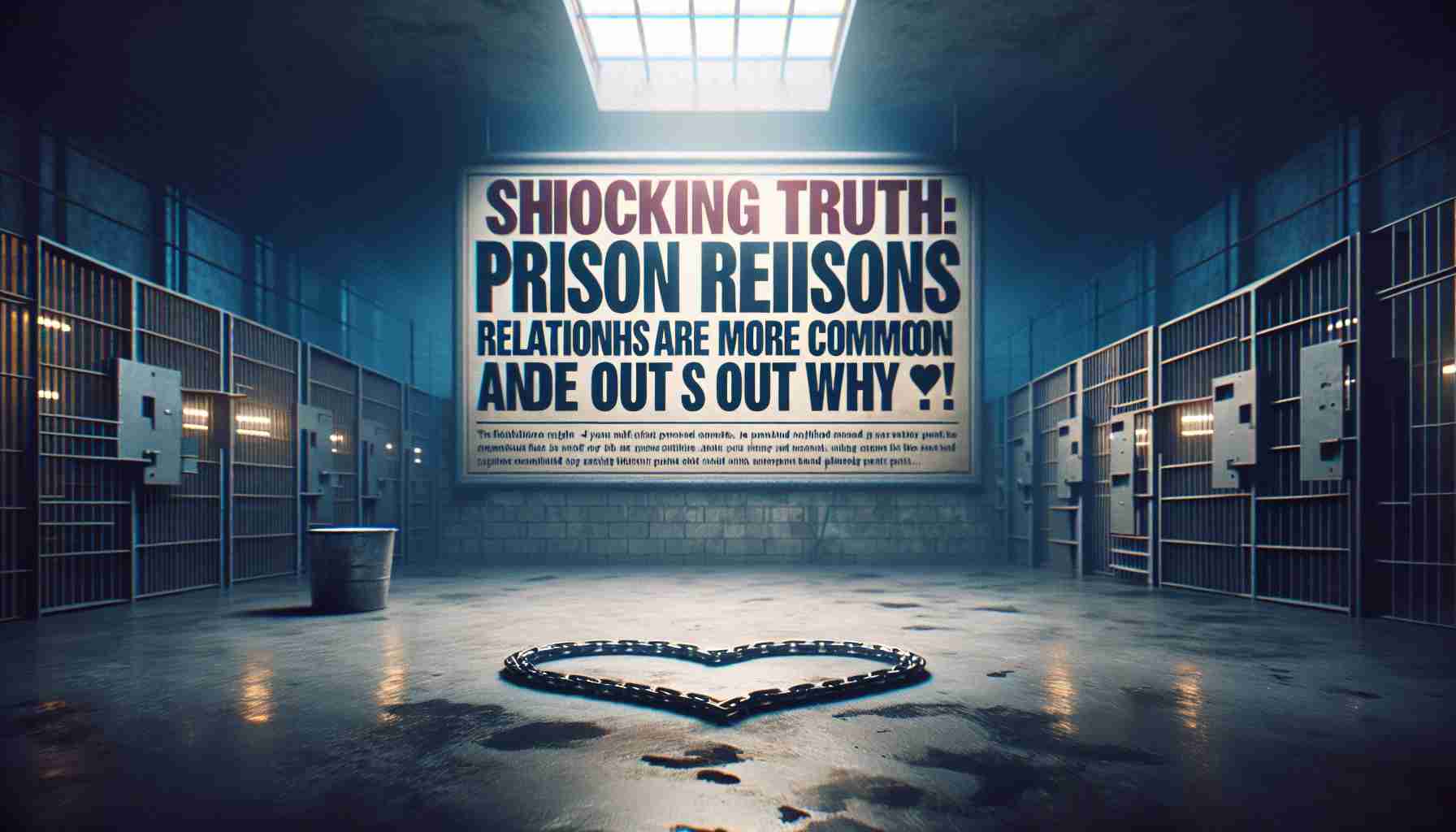The Reality of Prison Relationships
When news broke about Linda De Sousa Abreu, a female prison officer, admitting to engaging in a sexual relationship with a male inmate, many were left astounded. However, for those familiar with the prison environment, such incidents may seem less surprising.
Abreu’s actions led to a 15-month prison sentence, a reflection of strict regulations in correctional facilities. Drawing from personal experience during a four-month incarceration in 2022, one individual shared insights into the dynamics that can lead to sexual encounters behind bars.
In the confines of a prison, feelings of isolation and a desperate need for human connection can pave the way for illicit relationships. The emotional and physical needs of inmates frequently collide with the complexities of prison life, leading to encounters that may defy logic but are rooted in basic human instinct.
This individual recounted a brief, yet intense interaction with a fellow inmate, illustrating that even within controlled environments, the urge for intimacy can manifest in surprising ways.
As society grapples with the implications of such relationships, the case of Abreu serves as a stark reminder of the intricate and often hidden truths about life behind bars. For inmates and officers alike, the lines blur in the search for companionship and a sense of normalcy in an otherwise restrictive environment.
Understanding the Complexities of Relationships in Prisons
The Dynamics of Prison Relationships
Prison relationships, particularly those that cross the boundaries of professional conduct, are often shrouded in controversy and misunderstanding. The case of Linda De Sousa Abreu, a female prison officer sentenced to 15 months for engaging in a sexual relationship with a male inmate, brings to light the complexities of human interaction in correctional facilities. While such incidents can shock the public, they may be less surprising to those familiar with the emotional landscape of incarceration.
Insights into Prison Life
1. Emotional Isolation: Inmates frequently experience profound feelings of loneliness and disconnect. This emotional isolation can create a desperate need for connection, driving individuals to seek relationships that might otherwise be considered inappropriate.
2. Psychological Pressures: The psychological strain of life behind bars can lead to various coping mechanisms, including forming bonds with fellow inmates or staff members. These relationships can provide momentary relief from the harsh realities of prison life.
3. Power Dynamics: Interactions between inmates and correctional officers are inherently unequal. Such dynamics can complicate relationships, as the desire for intimacy may intersect with issues of authority, vulnerability, and trust.
Pros and Cons of Prison Relationships
Pros:
– Emotional Support: Relationships can provide essential emotional comfort and support to both inmates and staff, fostering a sense of humanity in a dehumanizing environment.
– Coping Mechanism: For some, these relationships may serve as a way to cope with the challenges of incarceration, offering moments of joy amid adversity.
Cons:
– Legal Consequences: Engaging in sexual relationships within prison settings often leads to severe legal ramifications for staff members, including imprisonment and loss of career.
– Ethical Implications: Such relationships raise ethical questions regarding consent, power imbalance, and the responsibilities of correctional staff.
Trends in Prison Relationships
Recent studies indicate a growing trend in the exploration of romantic relationships within prisons. An increase in programs aimed at providing mental health support and educational opportunities for inmates may alter the dynamics of how relationships are formed and maintained.
Innovations in Correctional Facilities
Many modern correctional facilities are experimenting with programs that promote inmate engagement through art, education, and therapy. Innovations aimed at improving mental health can lead to healthier forms of interaction, potentially reducing the occurrence of inappropriate relationships.
Security Aspects
Understanding the implications of prison relationships is critical from a security standpoint. Instances of inappropriate relationships can lead to breaches in security protocols, posing risks to both the staff and the inmate population. Ongoing training and strict policies are essential for maintaining a safe environment in correctional facilities.
Conclusion
As we reflect on the realities of life behind bars, it becomes clear that the need for human connection is a fundamental aspect of the human experience, even in restrictive environments. However, the complexities of these relationships demand careful consideration by correctional systems to ensure safety, ethics, and emotional health for all involved.
For more insights and information on prison life and corrections, visit Federal Bureau of Prisons for resources and statistics on the state of correctional facilities in the United States.
